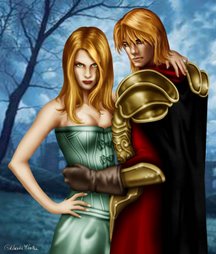Salman - The Great
No, not the shirtless wonder. The bespectacled, much-married, much-reviled but also much-admired writer, Salman Rushdie.
After running through the gamut of Enid Blyton, Sherlock Holmes, Agatha Christie, Hardy Boys, Sidney Sheldons etc, one of the first "literary" books I read was Shame by Rushdie. This was followed in a matter of weeks by Midnight's Children. The second still remains one of my all-time favourites and the one book i have re-read the most (hmm.. except maybe the Harry Potter books. Dont think thats anything to be ashamed of!). Its the only book I have bought twice, after having lost my first copy to a bunch of borrowing friends who probably never read it. He was the first writer I called my "favourite writer" after I got over Dame Agatha.
Though he still counts among one of my favourites, the only other book of his that I have read is "Satanic Verses". Maybe this was a factor on my not having read any of his other books, not because of the controversies attached to it, but because I found the book a complete drag! The words were as beautiful as ever, and a Rushdie book is never one which you abandon half-way. But one craved the magic of his art. Was this the same writer who created the marvelous scene at the beginning of Midnight's Children where Aadam Aziz hits his nose against the ground while performing his prayers in the frosty winter of Kashmir? The drops of blood become rubies before they touch the ground, his tears turn into diamonds... This was the same magnificent writer who left this wide-eyed, young reader mesmerised with "knees and a nose, nose and a knees". The high suspense as the midnight hour approaches in the chapter aptly named "Tick Tock". I would probably end up with a post the size of the book if I keep going at this!
Compared to Midnight's Children, the controversial Satanic Verses felt like a let-down. But yet, its been in some ways the defining point in Salman's life. Ever since the fatwa, he has lived in constant danger of assassination and persecution from Islamic extremists. In 1989, a plot to blow him up was foiled when the bomb exploded prematurely, killing the terrorist instead. The recent Glasgow burning-car-in-airport-terminal incident was said to be inspired by the rage of the extremists on Britain awarding knighthood to Rushdie.
Salman was the first writer from the Indian sub-continent who dared to write not in the Queen's language, but in the queer mix of regional tongues and English which is the true Indian English. This use of the colloquial language itself has inspired a generation of writers ranging from Rohinton Mistry to Chetan Bhagat in accepting and writing in their own language, rather than aspiring to the prose of their western counterparts. He is also considered one of the masters of the "magic realism" genre although his more recent books have not been strictly of this type. More than this classification though, the magic of his stories come from Rushdie's insistence to get to the origins and get to the roots of his protagonists. Saleem Sinai's story would never feel the same without first having learnt of his quaint antecedents.
Through all the persecution, Salman has maintained his dignity. When Britain decided to ban the Pakistani movie which had Rushdie as a villain plotting the downfall of Islam, and is shown as vanquished by the long arm of erm.. Allah himself, Rushdie himself requested that the movie not be banned. His logic was succinct and street-smart - a banned movie would have become the hottest video in town. He has appeared in many discussions and has always upheld a reformist view on Islam.
He has spoken in support of women's rights to not wear the burqa and has spoken in support of free speech. He has maintained a certain amount of self-deprecating humour at times. When asked by a journo about how he felt when he first heard about the fatwa declared by Ayatollah Khomeini, he replied that his first though was: "I'm a dead man!" Every time he speaks about the reforms needed in the Islamic world, fresh death threats are issued. But Salman continues to speak out on the same topics. Maybe a few will hear.
To a smaller extent, his shrouded, turbulent life recalls the same kind of persecution as Mandela and Aung San Suu Kyi faced. His every move needs to be protected information. As he mentioned in an interview with Salon magazine, "(if) you ask me where I am going tomorrow, I can't tell you". But inspite of these, he had it in him to give the below answer to the same interviewer -
Q: Fiction is not taken very seriously in our culture and yours has been taken so much more seriously than most. Having been sentenced to death for the content of a novel, how seriously do you think fiction should be taken?
Salman: Very. I think there is nothing wrong with the idea that fiction is a matter of life and death. Look at the history of literature. Look at what happened in the Soviet Union. Look at what's happening in China, in Africa, and across the Muslim World. It's not just me. Fiction has always been treated this way. It does matter and it's often very bad for writers that it does. But that just comes with the territory.
I bow to you, Sir Salman Rushdie.










No comments:
Post a Comment